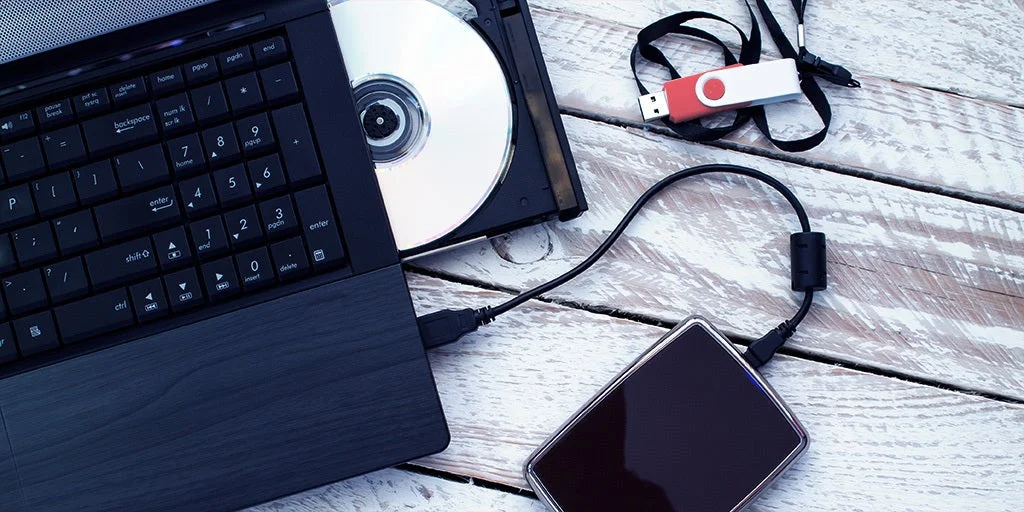In times gone, handling someone's estate was a straightforward process. While it might not be the most pleasant experience at least there were tangible things you could look for. As we progress into the future a lot more of our lives are becoming digital.
What is a digital legacy?
Essentially your digital legacy is all that you leave behind online. A good way to think of it is as your digital footprint. One of the obvious things that this refers to is your social media presence. Another more subtle way are things like your email address, bank account details and utility bills.
Here you’ll find a guide on some of the things you should be aware of when it comes to your digital legacy. While it is a relatively new concept, it can save your family a lot of stress in the long run.
What should be your priority with your digital legacy?
Writing a Will can be already pretty daunting. It is a crucial part of planning for the future so you should consider writing something about your digital legacy into your will. Having a plan in place for your possessions can save your family a lot of stress.
Preparing a Will doesn’t have to be complicated though. If you choose British Seniors as your Over 50 Life Insurance provider, you’ll get a free Will Kit with your policy.
You can also find some more information on writing your Will here.
Even if you don’t use the internet too much, we’re willing to bet that your digital footprint could still be bigger than you expect.
A good way to make things clear will be to break it all down into these categories:
- Passwords
- Online bank accounts and financial life
- Email addresses and social media
- Digital assets like photos or music
What happens to your email address after you pass away?
Probably the most basic way in which you could be exposed is through your email address. With our email addresses, we can log into a variety of different platforms.
Providers like Google or Microsoft are only getting tougher on giving people access to accounts.
An easy approach to this conundrum could be to leave your passwords with someone you really trust. Write these passwords down and update them regularly. Obviously making sure they are kept safe is important too. In terms of people to leave them with, an executor of your Will could potentially be a good choice.
Still not convinced? Here’s an example. If you pass away your family will want to cancel certain bills or accounts to prevent extra charges. The government service Tell Us Once covers things like taxes, vehicles and benefits. However, utility bills may not be covered with this.
Without a recent paper record of your account or access to an email address, it could prove more stressful for your family. By leaving the passwords with someone you trust, you can help things go so much smoother. The last thing your family would need at a time like that is to be on the phone for hours and hours trying to cancel a bill.
What Happens to Your Social Media Accounts after you pass away?
There are plenty of reasons to use social media these days. One of the main reasons is to keep in contact with your loved ones. Texting and video calling are some of the ways a lot of us have adopted social media into our lives.
Another way is uploading photos because we are all proud of our families. With these kinds of things going up online it's more important than ever to have a plan in place. Once they are informed, a lot of social media companies will either deactivate the profile or turn it into a memorial.
In terms of specific sites, Facebook and Instagram both allow you to nominate a legacy contact. This will make the process of memorializing or deleting so much quicker. With Twitter, the company will let your executor or family member deactivate your account. You will need to check out the terms of service for the specifics.
So, when it comes to social media accounts, you can protect yourself by nominating someone in your will to handle those accounts should you pass away.
What about your online media you’ve paid for when you die?
So, another big question you might have relates to what happens to things like music, books and films that you’ve paid for. Unfortunately, they don’t work like physical vinyl records or CDs. Legally speaking you don’t truly own those things. The way it works is very similar to renting. So, for example, if you paid for an album on iTunes you technically don’t own it. That means if you have a large digital collection you can’t pass it on.
When you pass away what happens to your digital assets?
Post-retirement for you might have meant a change in career. You may have turned your hand to writing or even making music. If you’ve made money from these pursuits it might be important to consider what happens next. One of the ways people store this kind of work is online or digitally.
Therefore, it would make sense to have a plan for that hard work. Storing them on hard-drives and leaving them in a safe place could be a good approach. Then once you’re confident they are safe, a few lines in your Will about what you want your loved ones too with them Will should be sufficient.
Make a Plan for your Digital Legacy Today
When the time comes it can be difficult for even the strongest people. There are plenty of things to consider for what comes next once you’ve passed on. At British Seniors, we believe protecting your loved ones should be straightforward. If you decide to get covered with us, you’ll receive a free Will kit with your policy, so you can plan and get your digital legacy sorted out.

